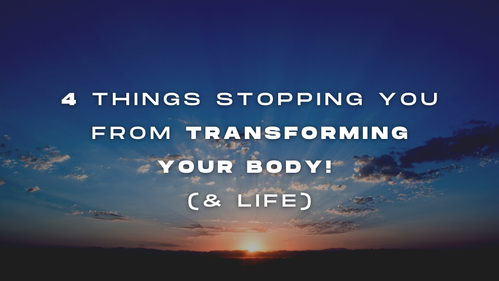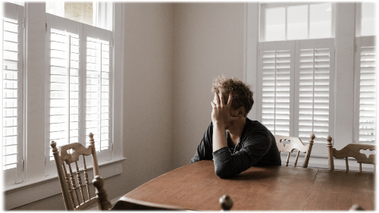1. Comparison to Others“Comparison is the thief of joy” - Theodore Roosevelt Comparing yourself to others is a guaranteed way to feel inadequate, yet here we are, spending our lives using other people as a yardstick to measure our success. As human beings we’re innately concerned with status; we want to know where we stand in the social hierarchy so that we know where how to act accordingly. But, when you really think about, comparing yourself to other people doesn't make a great deal of sense. Every person you compare yourself to not only has a different set of genetics to you, but has lived through different experiences. These two things combined have shaped them into the unique human being that they are. What's more, each of us enjoy different lifestyles, have different strengths, & hold different values and ideas of success. So based on all this, do you really think that to compare yourself & your unique set of circumstances to someone else & theirs makes any sense? Quick example. Let's say I was to compare myself to another personal trainer, one who does 40-50 sessions per week (I currently do ~20) & earns significantly more money than myself. Now, if my highest values were financial success & working as much as possible, I’d probably feel pretty inadequate & as though I ought to be doing more. But, fortunately enough, I’m assured in my own values. I recognise that my idea of success isn’t working myself into the ground so that I can earn enough to take 3 trips to Ibiza a year (nothing wrong with Ibiza, it’s just not my jam). Personally, I’d rather work less, earn less, but establish a work-life balance that allows me to enjoy life at a slower pace. That’s just my preference. There’s no right or wrong way to live life, but as long as I understand that I'm a completely unique individual & remain focused on living aligned with my personal set of values, then I’m good. So recognise that comparison to other people really is ridiculous. The only comparison that I do encourage is comparison with your former self. Looking back at previous iterations of yourself as a means of measuring & reflecting upon your growth is a healthy practice to engage in. 2. Self JudgementStop beating yourself up! So many people go through life perpetually harassed by their inner critic - the little voice in your head that tells you, you could've done better, or, you should've done this or that. You genuinely believe everything that it tells you, despite the fact that a huge amount of it is neither true nor of benefit! Recognise this: any belief that you hold about yourself is fictional. It’s literally just a story about yourself that you’ve created based on past experience. For instance, let’s say you hold the belief that you aren’t good enough - in whatever capacity. Can you comfortably say with absolute certainty & assuredness that that is a factual statement? Of course you can’t. There’s absolutely nothing wrong with you.. you've just convinced yourself that there is. For as long as you’re placing judgement on yourself & giving too much respect to your inner critic, you’re making it a whole lot harder to achieve the positive outcomes that you desire in life. If you can start to create some distance from your inner critic (by understanding that you are not your thoughts, & that what your mind says isn't the objective truth) and accept yourself for who you are & where you’re currently at, what you'll find is freedom. You're no longer living in a state of fear & worry, but in a state of abundance & openness. Mindfulness practices such as meditation & journaling are hugely useful for creating separation between you & your thoughts, but a simple trick that you can implement should you find yourself overwhelmed with self-criticism is this: Put a question mark at the end of each thing you say to yourself. Start to question the validity of your thoughts, instead of just accepting them as a complete truth. 3. Addiction to ComfortThe desire for comfort makes perfect sense from an evolutionary perspective. Our ancestors would’ve rarely had the opportunity to experience comfort, meaning that when the oppotuniay did arise, they’d grab it with both hands. Fast-forward to modern day society; today the problem isn’t a lack of comfort, it’s an abundance of it. And too much comfort is not a good thing. It makes you complacent, lazy, & sick. Think about all of the things that bring you comfort in life - junk food, alcohol, tv, social media, sitting on the sofa all day. I'm not saying you should never allow yourself to indulge in these things, but a lifestyle centered around them will make you a very unhealthy human being. The problem is that most of us go through life trying to control our external circumstances. We avoid discomfort, thinking that it’s a viable long-term strategy for dealing with it. Surprise, it's not. What you need is healthy doses of discomfort in your life. Now the feeling of discomfort is never going to be pleasant. But, if you want to grow as a human being - whether that be in a physical or a psychological sense - it really is non-negotiable. I'm not sure there's a better metaphor to advocate the value of discomfort than strength training. To build muscular strength & size, you have to expose your body to resistance (discomfort), recover, & then expose it again (with slightly greater resistance than last time out). By extending yourself outside of your physical comfort zone, you're developing your body's capacity to handle future discomfort. The same applies when you go through mental or emotional hardship - the loss of a family member, a rough breakup, or losing your job, for example. So long as you process the event appropriately, the discomfort experienced actually creates greater mental resilience down the line. So, the key is to embrace discomfort. Push yourself physically, try new experiences, & be open to opportunities that you make feel uneasy. That's where the growth is at! 4. Lack of DirectionA lack of direction is one of the biggest things that a lot of my personal training clients struggle with before working with me. They lack clarity on what it is they actually want & how they're going to make it happen. Without clarity on these things, you're literally just playing a game of chances. Resultantly, I can more-or-less guarantee two things: 1. It’ll take you a whole lot longer to get you where you want to go 2. You’ll make all sorts of mistakes along the way. I know this because I’ve lived it - I’ve played the guessing game, made the mistakes, wasted the time. I’m talking about walking into the gym without a plan or an idea of what you're doing, paying no attention to the quality & quantity of food you’re eating, and doing the same things over & over without making any real progress. What's more, without direction it's incredibly tough to feel motivated & remain consistent with your efforts. So, how do you get clear on your direction? I like to break it down into 3 main steps. The first step is self-awareness. By this i mean getting very clear on your values - the things you care most about in life. This is fundamental because the only way to remain consistent with any behaviour or habit is by genuinely caring about the outcome that it's aimed at creating. The next step is to outline a big picture goal - a clear target that you'd like to achieve moving forward. Pick a specific & measurable target to strive for within the next 6 months. The final step is to break that big picture goal down into simple, manageable, daily actions. Breaking down your goal in this way provides you with straight-forward actionable steps to focus on each day. If you want to go deeper & learn more about how you can build a sense of direction & remain consistent, I suggest checking out this blog post. |
Author
Christian Lawal Personal Training.
Personal training in Tunbridge Wells, Tonbridge & Sevenoaks. Archives
January 2024
|




